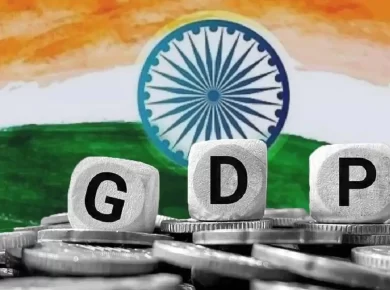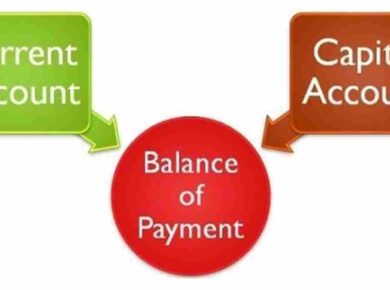Capital Gains Tax, Transfer Pricing & GAAR
Points to Ponder in This Article – This is an important article to understand the capital gains tax, GAAR, Transfer pricing & arm length pricing. Understand why IT department is facing challenges to tax big MNCs who circumvent the money to avoid paying taxes to developing countries.
Capital Gains Tax (CGT)
A direct tax, Levied on profit, when you sell capital assets (shares, gold, bonds, real estate etc.). Matter related to Capital Gains Tax falls under IT department.
- Capital Gains Tax Rate depends on time frame viz.
- For bonds & equities CGT is 15 % for time period < 1 year
- For bonds & equities CGT is 20 % for time period > 1 year
- For Gold & Real state CGT is 15 % for time period < 3 year
- For Gold & Real state CGT is 20 % for time period > 3 year
CGT & Withholding norms (TDS)
- Assume a seller wants to sell a company to a buyer at profit of 1000 crore and has to pay 100 crore CGT to income tax department
- In real life, seller himself doesn’t need to pay 100 Crore CGT to Government
- Buyer will have to keep aside 100 crore for government, and pay only 1000 – 100 = 900 crores to seller
- This is called withholding norms or Tax deduction at source (TDS)
Vodafone CGT case
- Hutchison (Hongkong) own a company called CGP investment holding ltd at (Cayman Island)
- CGP investment holding ltd owned 67% shares of Hutch-Essar India
- Vodafone (HQ London), tells its subsidiary in Netherland, to purchase Cayman Island Company from Hutch (Hongkong) for the price of 11 billion dollars (~55k crore rupee that time)
- Now Vodafone owns CGP investment holding ltd, therefore, and thus indirectly owns Hutch-Essar India also.
Result > A buyer (Vodafone) has (indirectly) purchased shares (of an Indian company) from a seller (Hutch). So, does Buyer (Vodafone) have to pay Capital Gains Tax, in India?
Vodafone > We’ve not purchased “Hutch Essar”, we have purchased CGP & CGP is not an Indian company, so you cannot demand any tax from us.
Income Tax Department → CGP is a post box company in a tax haven. It doesn’t produce any mobile phones, then why have you given 55k crores for it? Obviously, to control those 67% shares in Hutch-Essar India! Therefore, CGP’s valuation is based on Indian asset; hence, we can demand CGT.
Matter goes to Income tax Appellate tribunal (ITAT) and then to court:
- 2010 – Bombay High Court says government right, Vodafone wrong. Orders Vodafone to pay the taxes
- 2012 – Supreme Court says government wrong, Vodafone right. Under the current Income Tax act 1961, Income tax Department has no jurisdiction in this matter, when companies trade assets outside India
IT Act 1961: Clarification (2012)
- Capital gains will be levied on companies outside India, whose value is derived from Indian Asset
- Such companies will be considered located within India.
- Will apply to all deals from 1962 onwards (hence called “Retrospective”)
- So, even after winning case in Supreme court, Vodafone’ trouble did not end.
- Income tax department again sends notice for the same Capital gains tax.
Direct Tax Code (DTC)
- Direct Tax Code aims to replace the Income Tax Act of 1961
- DTC aims to fix discrepancies in Income Tax Act, so that Vodafone like cases, do not happen again
- Indirect (asset) transfers will be taxed in India, iF the companies involved, have at least 50 % of their assets located in India
- For example, Vodafone bought CGP investment ltd for ~55k crore rupees, because CGP owned 67% shares of Hutch-Essar India
- Therefore, income tax department can demand Capital gains tax from Vodafone
- Limitation: what if they create three separate post box companies each owning 30-30-30%
General Anti-Avoidance Rule (GAAR)
- Originally mentioned in Budget 2012, was to be implemented from 1/4/2014
- IT commissioner can take action against any business deal made outside India, to avoid taxes
- He can send notice to Indian Citizen, NRI as well as Foreigners, to recover such money –
- Even if they’re living outside India
- Even for retrospective deals i.e. deals happened before GAAR was implemented
- Even if deals protected under any Double taxation avoidance agreement treaty
- Burden of proof lies with the party and not IT commissioner i.e. Company has to explain their deal is genuine
- IT commissioner has to decide the case within 12 months.
- Aggrieved party can approach Dispute resolution Panel (DRP) > Income Tax Appellate Tribunal (ITAT) > High court and finally Supreme Court
Shome Panel on GAAR
- IT commissioner should send notices only in rare cases- where he can recover more than 3 crore rupees.
- GAAR should not be used for filling revenue shortfalls as revenue shortfall
- For retrospective cases- gov. should only recover tax dues & should not demand additional penalty and interest rate on taxable amount.
- Exempt the buying/selling of company shares from Capital gains tax. Better just increase the Securities Transaction Tax (STT) on buying/selling of such shares. Then, there is no litigation about “CGT evasion via Post Box Company”.
- Don’t implement GAAR from 2014. Implement it from April 2016.
Transfer Pricing
- When capital assets / shares are transferred from seller to Buyer, then Buyer has to withhold / deduct the capital gains tax for government.
- So, when shares are transferred from one person to another, we can hope the share price is decided by market forces of supply, demand and speculation.
- But what if two subsidiary companies transfer shares to each other, and play mischief.
Vodafone Transfer Pricing Issue
- 2008 – Vodafone India sells its shares to Vodafone Mauritius for ~ Rs. 250 crores
- Vodafone Mauritius says we bought shares to infuse new capital in Vodafone Indian arm
IT Department
- Real Market price of those shares ~1550 crores
- Vodafone’s Indian arm deliberately sold its shares at a lower price of ~250 cr (undervaluation of ~1300 crore)
- This is one type of hidden loan or secret profit transfer from Indian arm to Mauritius arm
- Mauritius arm can sell those shares again to a third party at market price and make profit
- So in a way, Mauritius arm will make gain (in future), hence we want CGT on it
- Thus CGT + penalty + interest ~ Rs.3200 cr. demanded from Vodafone
But finally HC rules in favour of Vodafone & further BJP government decide not to pursue case in supreme court
- Mainly to improve investor confidence
- To promote Make in India initiative
- To make better FDI flow in India
Transfer pricing reforms
- Advance Pricing Agreement – To reduce the transfer pricing related litigations, and enhance MNC confidence to invest in India
- APA is an agreement between Tax payer (Vodafone) & Tax authority (IT department) for deciding transfer price or arm’s length price in advance
- Roll back provision > Means, If Vodafone and IT Dept. sign an APA agreement right now, its (share pricing) methodology can be applied for solving pending cases upto last four years
Arm’s Length Price
- The price at which two unrelated parties will make a deal.
- Since these two parties are unrelated, hence market forces of supply-demand will work, the (share) price will be rational.
- So, government will get the full tax it deserves.
But, When MNC giant’s one subsidiary company makes deal with another subsidiary company- they’re related with each other. In this case, deal pricing may not be rational & Government may not get full tax it deserves. Therefore, government wants to ensure that following two prices are same.
Advance Tax ruling
- Suppose a foreign company enters India via Joint Venture / Subsidiary / etc.
- But India has a complex tax structure; the foreign company may need clarification in advance, on the Taxes that may apply to it.
- To help foreign companies, Government setup a body called Authority for Advance Ruling (AAR)
- Foreign company can file application to AAR, to seek clarification on its tax liabilities & AAR has to reply within 6 months.
- AAR is binding on both company (Tax payer) and IT department.
- IT officials cannot send notices/raids if AAR already rules in advance that xyz matter are exempted
- Even Indian companies can approach AAR
- Thus, AAR provides clarity on tax structure in India, Promotes “Ease of Doing business”, Speedy decisions & Avoids lengthy court litigations.
For more updates, visit www.iasmania.com. Please share your thoughts and comments.
If you’re passionate about building a successful blogging website, check out this helpful guide at Coding Tag – How to Start a Successful Blog. It offers practical steps and expert tips to kickstart your blogging journey!






